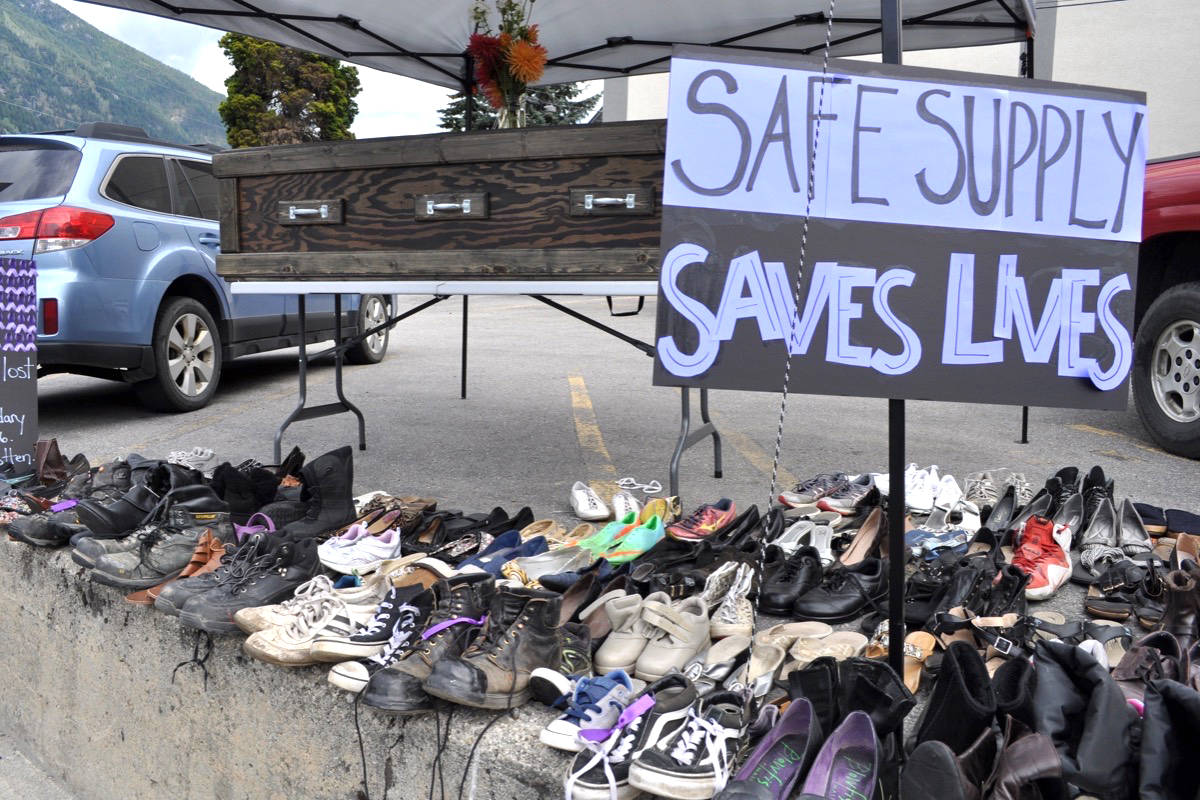This article was originally posted in the Nelson Star: Oct 21, 2020
The money supports an outreach worker who helps people access pharmaceutical opioids and stimulants.
The Nelson Fentanyl Task Force (NFTF) has directed $15,000 in funding to help improve access to new provincial pandemic prescribing options for people who use substances, also referred to as safe supply. The NFTF is a collaborative group formed in 2016 in response to the overdose crisis, and is comprised of healthcare workers, emergency responders, and many other stakeholders across the community.
The funds will go towards supporting an outreach worker on a team in Nelson. The team supports people to access pharmaceutical opioids and stimulants to mitigate the deadly effects of the overdose crisis. The ANKORS outreach worker, funded by NFTF and ANKORS, works with outreach staff from several other local organizations, including Nelson CARES, Interior Health and Nelson Community Services.
The BC Coroner’s report shows that more people are dying due to overdose in British Columbia than ever before. In the first eight months of 2020, 1,068 people have died due to overdose in B.C., which is more than in all of 2019. Overdose prevention sites, wider use of naloxone, opioid agonist therapy (OAT), and drug checking responses in B.C. were contributing to reduced death rates prior to the COVID-19 pandemic.
Research in Vancouver has shown that safe supply options can reduce reliance on the toxic drug supply, can be a pathway to recovery and stabilization, and can improve the ability to stay in housing. Doctors, nurse practitioners, nurses, and psychiatric nurses, with proper training, can now implement these new prescribing guidelines.
Local nurse practitioner Zak Matieschyn is involved in the local outreach team as a prescriber and consultant and is also involved on the policy level. Matieschyn says safe supply can reduce risk of death.
“When you provide a safe supply of a stimulant, or an opioid, we know that people are pretty informed on how to use that and they don’t overdose from it. And if you use crystal meth, and we prescribe you dextroamphetamine, then it’s not going to be contaminated with fentanyl and you won’t die from it,” he said.
Matieschyn is cautiously optimistic about the new practices.
“I still think this is probably the single best thing we can do right now to address the overdose crisis,” he said. “That is totally separate from how best do we treat addiction, or how best do we prevent addiction. In order to improve treatment, we could talk about the need for more treatment facilities and other supports.
“In order to prevent addiction — that’s a generational project, it will take decades to protect the next generation from the root causes and adverse childhood events and trauma and improving equity. All of this is true, but people are dying and at risk right now. And so we need to try something innovative and new.”
ANKORS outreach worker Erin Thomson says the program can save lives.
“When COVID hit, we had the opportunity to see the safe supply program literally affecting positive change in people’s lives where they are not as exposed to the potentially fatal and toxic side effects of street drugs,” said Thomson.
Thomson says the safe supply may also be helping some people to stay housed. Hotel shelter options are being used to expand the shelter in Nelson during COVID.
“A good handful of people who are on safe supply have been really successful at living at the hotel because of their decreased risk of overdose. That’s a big deal if they can find stability, then they can go into housing.”
ANKORS peer navigator Amber Streukens says there are benefits to local outreach work and pandemic prescribing.
“I think of safe supply as an essential first step. Harm reduction has stigma attached to it. But we have to stop the bleeding. We need safe supply now. Access to safe prescription alternatives can help people use a lot less from a toxic illicit supply and that is a significant reduction in risk.”
ANKORS has been identifying high levels of fentanyl and other dangerous toxins in the street drug supply recently, consistent with drug alerts province-wide.
“In this moment with the highly toxic drug supply, we don’t have time to negotiate anymore. …,” said Streukens. “We need solutions that are flexible and adaptable, because not everyone has the same needs.”
NFTF is committed to raising awareness about the fentanyl/opioid crisis and reducing death due to overdose. The collaborative group receives funding from the Overdose Emergency Response Centre (OERC), the Ministry of Mental Health and Addictions (MMHA) and Community Action Initiative (CAI). ANKORS is the regional social service agency that receives the funds and helps to facilitate this work. NFTF reallocated funds toward outreach work after it cancelled its educational conference due to the COVID-19 pandemic.
NFTF is focused on reducing stigma around mental health and addictions and to increasing use of public healthcare services. It is a collaborative group of service professionals, community members, emergency responders, youth counsellors, Indigenous services, peers (people with lived and living experience of substance use), and other community stakeholders. The group is committed to supporting the health and wellness of people in the Kootenay region.
For inquiries about opioid replacement therapy or the new specialized pandemic prescribing, please contact RISE BC Wellness Centre (250-352-5259) or ANKORS (250-505-5506).

